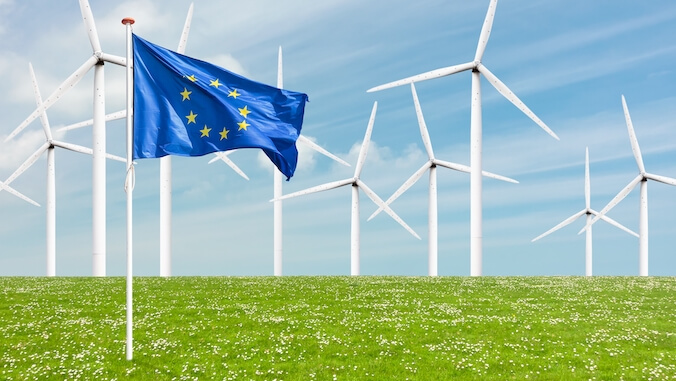If the European Union is Backsliding on Climate Policy, Who is Next?
Photo by Martin Bergsma/Shutterstock
The European Union is supposed to be a success story when it comes to climate change. The 27-member bloc has reduced its emissions substantially over the last few decades, to the point that 2023’s emissions were as low as any year since the 1960s. Some countries have started to get big majorities of electricity from renewable sources, at least for short periods of time. It is, though imperfect, a demonstration of how rich countries can start to take meaningful bites out of the problem. So far, at least.
The news out of the E.U.’s latest legislative negotiations has been ugly on the climate front, threatening to put real dents both in that reputation and leadership role and in the actual environmental progress being made. Most notably, a landmark Nature Restoration Law that would require the rehabilitation of at least 20 percent of the continent’s degraded land by 2030, has been shelved after eight member states withdrew support. The Belgian Prime Minister, whose country currently holds the rotating presidency of the Council of the E.U., said it is a “bad law.”
Meanwhile, laws putting environmental requirements on farm subsidies have been weakened, and member states are looking to water down rules about limiting deforestation in other countries from where Europe imports crops. Overall, the European Green Deal is “limping to the legislative finish line.”
The reasons for the backsliding aren’t universal, given the differing situations across 27 distinct countries, but a raft of farmer protests that have snarled a number of European capitals are among the main causes. European Parliament elections are on the horizon in June, and far-right parties are ascending across the continent. Though it would be hard to slow the momentum on renewable energy rollout and other issues, the climate progress the bloc has achieved is legitimately at risk.
Ireland’s environment minister Eamon Ryan told the E.U. Council last week that the backsliding is a “disgrace,” and that it risks ceding global leadership on the issue. And it raises an ugly question: if even the global leaders on addressing climate change find themselves dropping key provisions of their policy at a bit of political upheaval, what hope does the rest of the developed world have?